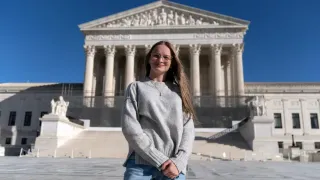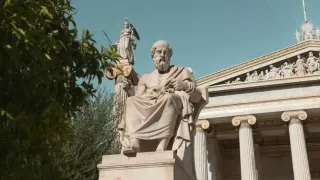
Jan 8
White House Will Present Trump's Ballroom Project for a Review Months After Construction Began
Darlene Superville READ TIME: 2 MIN.
The White House is expected to share details of President Donald Trump’s planned ballroom at Thursday’s monthly meeting of the National Capital Planning Commission, months after the East Wing was demolished in preparation for the construction.
The White House in December submitted its ballroom plans to the commission, one of two federal panels that review construction on federal land, usually before ground is broken. The National Trust for Historic Preservation has sued to halt construction of the $400 million ballroom, accusing the Trump administration of violating federal laws by proceeding before submitting the project for the independent reviews, congressional approval and public comment.
The first step in the review process for the East Wing Modernization Project is an information presentation, at which the White House outlines the project. Commissioners can ask questions and offer general feedback. A more formal review is expected in the spring, including public testimony and votes.
A summary on the commission's website said the purpose of the project is to “establish a permanent, secure event space within the White House grounds" that provides increased capacity for official state functions, eliminates reliance on temporary tents and support facilities, and “protects the historic integrity and cultural landscape of the White House and its grounds.”
A comprehensive design plan for the White House prepared in 2000 identified the “need for expanded event space to address growing visitor demand and provide a venue suitable for significant events," the summary said. It added that successive administrations had “recognized this need as an ongoing priority."
The 12-member National Capital Planning Commission is led by Will Scharf, a top White House aide. Scharf said at the commission's December meeting that the review process would be treated seriously and be conducted at a “normal and deliberative pace.”
Carol Quillen, president of the Trust, told The Associated Press in a recent interview that she takes Scharf “at his word” that the commission will do its job.
Trump, a Republican serving his second term, has been talking about building a White House ballroom for years. Last July, the White House announced a 90,000-square-foot space would be built on the east side of the complex to accommodate 650 seated guests at a then-estimated cost of $200 million. Trump has said it will be paid for with private donations, including from him.
He later upped the ballroom’s capacity to 999 people and, by October, had demolished the two-story East Wing of the White House to build it there. In December, he updated the price tag to $400 million — double the original estimate.
The White House has announced few other details about the project but has said it would be completed before Trump's term ends in January 2029. Trump has said the ballroom will be big enough for future presidential inaugurations to be held there. He also said it will have bulletproof glass and a drone-free roof.
While in Florida last week, the president bought marble and onyx for the ballroom “at his own expense,” the White House said. The cost was not disclosed.






